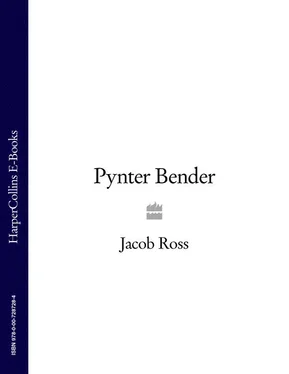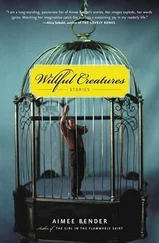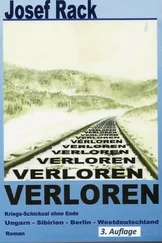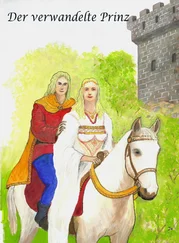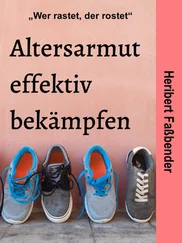Now, he’d only just got back home from the sea. He’d sat on the pebbles that faced the ocean and looked out at the grey shape of the land that rested like a giant finger on the water, beyond which were darkness and the boom of water breaking over reef. He’d repeated in his head the last words Santay said to him the day she returned him to his yard: that to truly rid himself of Zed Bender’s curse, he would have to cross that ocean.
Deeka was talking about John Seegal again when he arrived. He wondered if she’d ever been to see the swamp that her husband had left her for. He wondered if anyone in the yard had ever done so.
His mother came and placed his dinner in his lap. He wasn’t hungry, but he fed himself all the same, keeping his eyes on Tan Cee and her husband. He glanced across at Deeka’s face. She was talking too much to notice him, and for that he felt relieved.
Following Coxy in the dark was easier than Pynter expected. He had been behind him for so long his heels were aching and a film of sweat had broken out on his face. He was not afraid of the night. It was never the kind of deep black that Deeka spoke of in her stories, where you couldn’t see your hands even if you held them up before your face.
The night was full of shapes, some laid back against the skyline, some leaning hard against each other. The track curled itself around the roots of trees that rose as high as houses. It dipped into small ravines, turned back on itself so suddenly he sometimes lost his sense of where he was.
He thought there would be no end to Coxy Levid’s walking.
Past Cross Gap Junction, Coxy turned left and suddenly they were in the middle of a cocoa plantation that spread out before them like a warren of dark tunnels. Pynter had a sense of how far ahead of him Coxy was because of the glow of his cigarette and because he sometimes whistled a tune. Sometimes he stopped and pulled his shirt close because it was cold beneath these trees.
Tan Cee had told him of the snakes that lived beneath the carpet of leaves which every cocoa tree spread around its trunk. Crebeaux, she told him, were creatures so black they glistened. They moved like tar but were quick enough to knot themselves around the foot of a careless child, a rabbit or a bird and make a soup of their bones before swallowing them whole.
He’d lost sight of Coxy, had emerged on the edge of a small hill and hung there, leaning against the bark of a mango tree, looking down at the houses scattered along the hillside facing him. Lamplight seeped through their wooden walls. Their galvanised roofs glowed dully in the dark.
He was about to turn and make his way down when he caught the smell of cigarettes. He brought his hands up to his face. A hand reached around his shoulders and he felt himself thrown backwards. He’d lost his balance but he wasn’t falling. He felt his breath leave his body as the hand lifted him and slammed his back against the tree. Pynter opened his mouth and drew his breath; and there was Coxy Levid’s face, level with his own.
‘Why you falla me?’ Coxy shook him hard. ‘Yuh aunt send you after me?’
Pynter shook his head, made to speak, but his tongue had seized up like a stone inside his mouth.
‘You lie fo’ me, you never leave dis place.’ Coxy made a circle with his head that took in the bushes and the darkness around. ‘Y’unnerstan?’
A match exploded in his face again. Coxy’s lips were peeled back, his teeth white and curved like seashells. The light-brown eyes glowed in the matchlight like a cat’s.
‘Why you falla me, boy!’
‘I don’ know, jus’ … You squeezin me.’
‘That woman send you after me?’
‘No. I come – I come by meself. You, you squeezin me.’
‘So if I break your fuckin neck right here fuh mindin big man bizness, nobody goin to know.’ The fingers pressed harder against his forehead.
Pynter looked into Coxy’s eyes. He searched his head for words. Found nothing.
‘So what you fallain me for?’
‘I – I not goin to tell nobody.’
‘Tell nobody what? What you got in your mind to tell nobody, eh? A man cyahn’ take a walk? You think anybody could walk behind me for me not to know? You feel say you is spirit? You feel say all dem shit dem talk ’bout you is true? You feel say you can’t dead. You wan’ me to prove it?’
Coxy shifted his hand sharply down beneath Pynter’s chin. Now there was a terrible pressure at the back of his neck. His jaws were so tightly locked he could barely whimper.
‘You so much as breathe my name to anybody, you so much as tink a lil thought about where you falla me tonight, you so much as dream ’bout tryin it again, I make you wish you never born.’
The hand released him suddenly and he fell backwards.
Pynter stayed leaning against the tree, his breathing coming fast and hard. He listened to Coxy’s footsteps going down the path until he could hear the man no more. A little way off a dog barked. A few others across the hill replied, followed by a man’s voice – low and deep like far-off thunder. A woman’s laughter climbed the night air, so bright and musical it made him think of ribbons in the wind.
4
FROM THE SETTLEMENT of twenty dwellings or so east of Glory Cedar Rise a man sat hidden under one of the houses, dreamily looking down on Old Hope Valley.
The occupants did not know that he was there. He could have chosen any of the houses scattered about the hill, since they all offered the same view of the valley. After resting a couple of hours there, he’d picked up enough from the conversation that filtered through the floorboards to know that the woman’s name was Eunice and the man’s was Ezra, and that he worked in one of the quarries in the south.
He had dozed a little and then woken up. His feet still ached from the walk from Edmund Hill. The eight miles had taken him longer than he’d anticipated, but that was because for many years he had lost the habit of walking distances.
Having also lost the habit of sleeping a whole night through, he would sleep again for another couple of hours and then wake up to watch the morning come. By then, those above him would begin to stir. He would take the mud track down towards the river, or perhaps wait a couple of hours longer. The quarryman might find him there. He might move to say something, as any man would do to a stranger sitting beneath his house, but then the quarryman would stop and examine him more closely – the coarse old cotton shirt with faded numbers stencilled below the breast pocket, the heavy pair of leather boots, resoled and passed on to him as a present. And of course his face. The quarry man’s eyes would pause there and he would think better of whatever he was about to say and maybe go inside to tell his woman.
It was what always happened when, every few years, a man found him beneath his house waiting for the morning.
In the valley below, he’d counted the fires in the yards as they went out one by one with the deepening night, each bit of dancing yellow like a tiny signal of hope against all that darkness. He had watched the moon rise and smelled the morning, and had begun to wonder how they would receive him this time and what, if anything, had changed since he last saw them. And then the sky lit up a couple of hills ahead of him. It was in the general direction of where he wanted to go. He eased himself forward, thinking how strange it was that anyone would want to light a boucan this time of night, in fact so close to morning. He watched it burn till the flames died down, becoming no more than a glowing scar against the dark.
It was daylight and the valley filled with birdsong. He got to his feet. He moved with the litheness of a man accustomed to hard work. It would take him a couple of hours to get there, perhaps longer, because on his way up the other side of the valley he would pause to gather guavas, water lemons, perhaps carve a spinning top or two for the children. He always brought home something for the children.
Читать дальше
